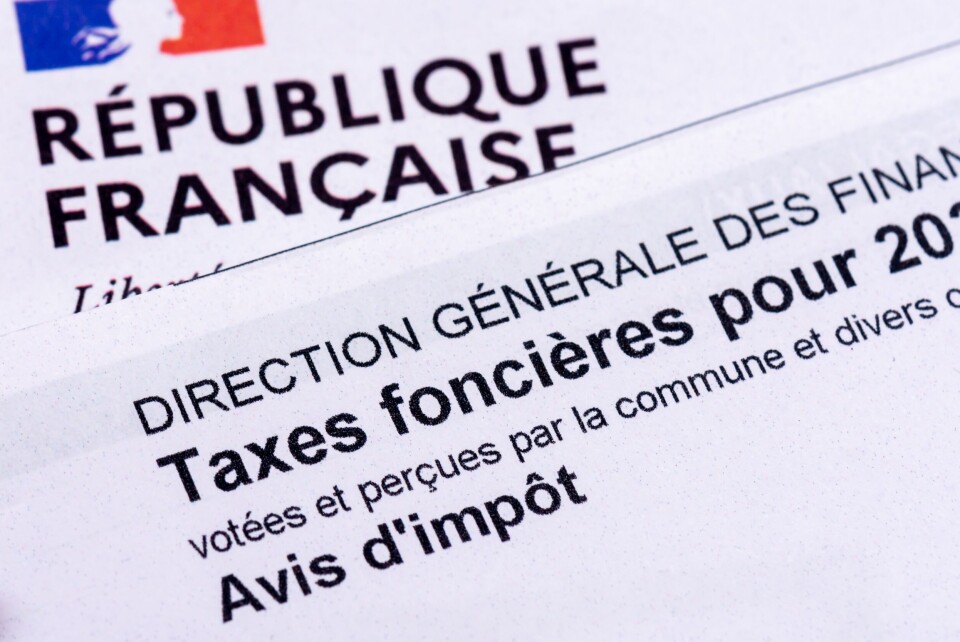-
Local election rule changes in France and why you may have a new mayor in 2026
Communes with fewer than 1,000 residents are particularly set to see changes from next year
-
Trump tariff rises: which American items will be worst hit and when?
Three rounds of escalating tariffs will impact €22 billion worth of US goods
-
Trump calls for Marine Le Pen to be freed (but she is not in prison)
US president said her embezzlement court case was a ‘witch hunt’
Why French property tax bills, sent soon, will show big increases
Many communes claim that the loss of other local tax income and rising costs mean they have been forced to increase the taxe foncière paid by owners

Bills for France’s taxe foncière (property owners’ tax) will start to arrive for households from next week - and are set to show significant rises.
This is, firstly, because an across-the-board increase of 7.1% – the largest yearly jump of the tax since 1986 – has been applied to the taxe foncière by the government.
This relates to the general rise applied this year to the theoretical rental values for homes, called the valeur locative cadastrale (VLC), which is a key element used by tax offices to work out the tax.
The annual adjustment to this is based on rises in the general consumer price index over the previous year.
Individual towns can then also apply their own increases to percentage rates applied to the VLC to calculate the tax, which is paid directly to local communes. This aspect is therefore within their control.
In some areas, this means the tax has been significantly increased, for example, by more than 50% in Paris, 30% in Grenoble, and 15% in Lyon.
There have been a number of legal challenges against the rises which some homeowners have classed as excessive.
The increase is meant to cover inflation (which rose 5.2% last year according to Insee), as well as the drop in local income from the removal of the taxe d’habitation (residency tax) from all main homes (this is now only applied to second homes) in France.
Loss of autonomy and rising costs contribute to tax hike
Taxe foncière and the related taxes on rubbish collection are one of the few remaining sources of income for town councils that they can directly control so this is one of the key reasons for the hike.
The gradual abolition of taxe d'habitation on all but second homes left an estimated €16.5billion hole in local council funding, which the government promised it would refill “to the nearest euro” with grants.
However, a number of towns have stated that, for various reasons, they have been unable to cope without bringing in rises to the taxe foncière.
Read more: Why do towns need permission to raise tax on second-home owners?
A ‘political choice’
The mayor of Metz – where property taxes for 2023 were increased by 14% on top of the national 7.1% raise – said the rise was “the only way to balance the budget,” and that the alternative would have been closing public services such as nurseries, libraries and swimming pools.
Communes also report having to deal with increased maintenance costs for public buildings.
“Some local authorities, such as Rennes and Toulouse, have experienced a veritable explosion in energy costs, with increases of between 400% and 500%,” said France Urbaine, an organisation representing France’s largest cities.
With these rising costs, then, local politicians have to make the choice between raising one of the only taxes they have control over, or cutting public services at a time when people are asking for more of them.
“It's a political choice that allows us not to call into question subsidised pricing of canteens or transport,” said Ian Brossart, deputy mayor of Paris who is in charge of housing.
Read more: Which French towns or cities hiked their property taxes the most?
When will taxe foncière information arrive?
Online information on the payment amount for those who pay in one sum will be available in their personal space on the tax website (impots.gouv.fr) from August 30.
For those who pay the charge in monthly instalments, the information will be available on the platform on September 22.
Alternatively, for those who opt for a physical bill, letters will be sent out between August 23 and September 26 (one-off payments) or September 18 and October 6 (monthly payments).
The tax can be paid online, or by cheque, or by monthly payments.
It is too late to set up monthly payments for 2023’s tax but this can be done towards your future tax bills.
You can set up the option through your personal space on the impots.gouv.fr website.
Read also
Tax bills, traffic, school aid: Important dates in France this August
























